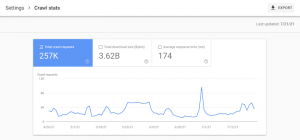— July 13, 2017

Quality Score is an often-used phrase when it comes to PPC. It sounds important, but is it really? In short, yes – Quality Score is extremely important for your PPC campaign. So what is Quality Score exactly, and how can you make sure you’re not ignoring this vital piece of your search campaign? Let’s dive in!
What is Quality Score?
Quality Score is an important component of search advertising that affects when and where your ads are displayed. Publishers use Quality Score to rate keyword performance in a PPC campaign, and optimizing them can help lower bid prices and achieve a higher ad position.
What are the Components of Quality Score?
Keywords receive an overall score on a scale of 1-10, as determined by a combination of historical performance data, ad relevancy, and landing page experience. Generally speaking, the higher the Quality Score, the more positive the experience for viewers of your ad.
The individual components of Quality Score receive a rating as well, which factor into the overall score. This means a keyword needs to be well-rounded in all three areas outlined below in order to achieve a high rating. For example, a keyword with excellent relevancy, a great website, but a low clickthrough rate may receive a low overall Quality Score.
Running a successful PPC campaign requires balancing many moving parts, and managing Quality Score is no different. Here’s what to look for in each component.
1. Expected Clickthrough Rate (CTR)
The CTR in your campaign is influenced by a number of factors, including device performance, which network the ad is running on, where on the page your ad displays, the search queries that triggered your ad, and so on. Google determines expected CTR through a complex algorithm that samples sections of this data and predicts the likelihood a user will click on an ad based on the keyword. This is the most difficult score to improve as advertisers are largely left in the dark regarding which factors may be hurting their score.
2. Ad Relevance
Successful ads match the searcher’s intent. Keywords that closely match the search terms used will help prevent irrelevant traffic and clicks. This goes beyond case matching – you want to make sure your ad and keywords correlate to the same point in the buying cycle, so choose your keywords wisely.
3. Landing Page Experience
When users click on an ad, they expect to be taken to a page with information relevant to their search query. For example, an ad about a current special should land to a page advertising the special. Ensuring that your keywords direct users to the most relevant page will help improve their experience and help keep bounce rate low. Likewise, slow-loading and confusing landing pages can cause users to click away.
Why Does Quality Score Matter?
In order to improve ad rank, advertisers are faced with a choice: increase your maximum cost-per-click (CPC) or improve your Quality Scores. As CPCs continue to rise, advertisers must utilize every tool at their disposal to maintain an optimal Ad Rank or risk succumbing to climbing bid prices in order to compete in their target market.
Even if budget is not an issue, disregarding Quality Score can negatively impact a campaign as subpar Quality Scores can cause ads and keywords to become disapproved or restricted.
Digital & Social Articles on Business 2 Community
(69)
Report Post




